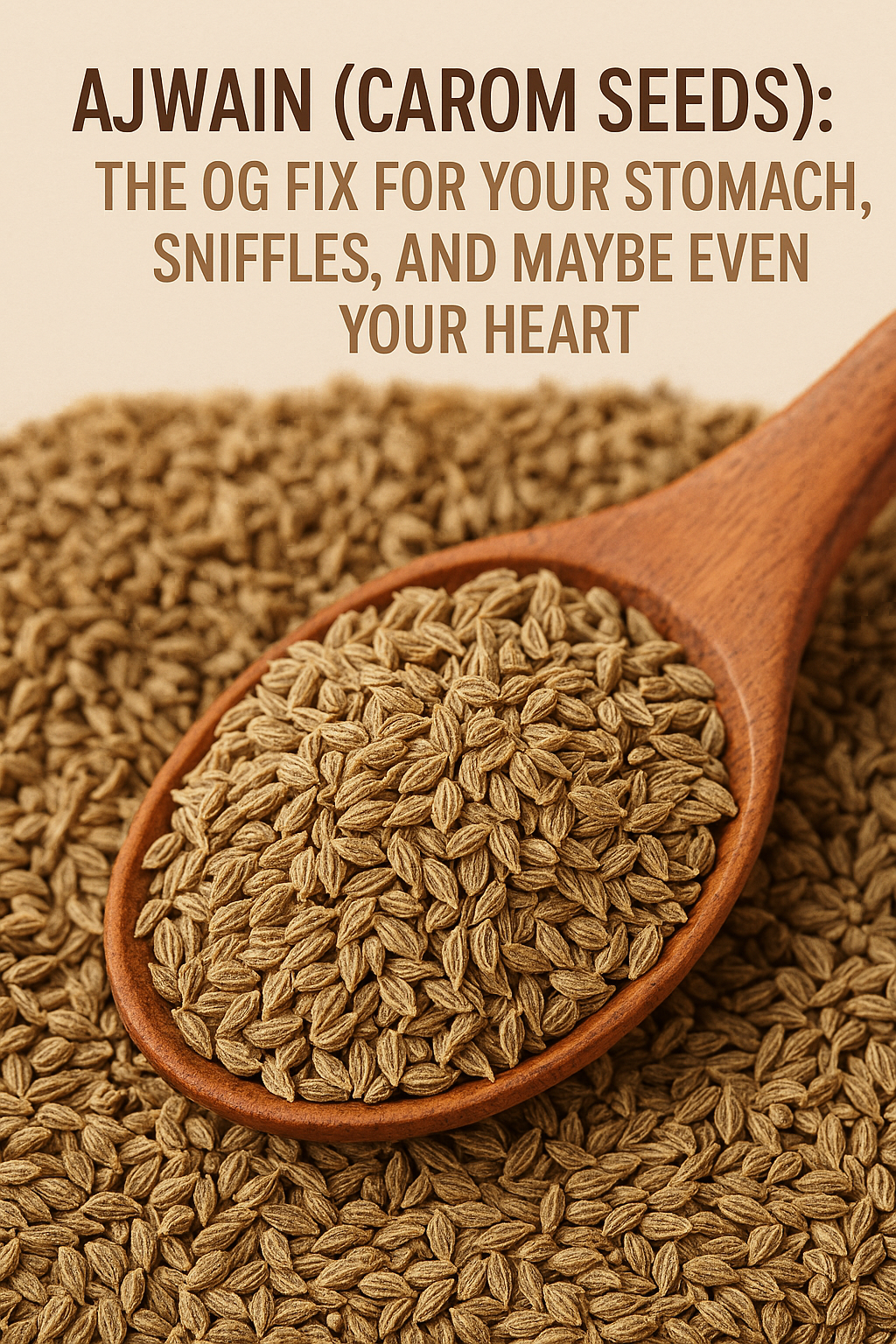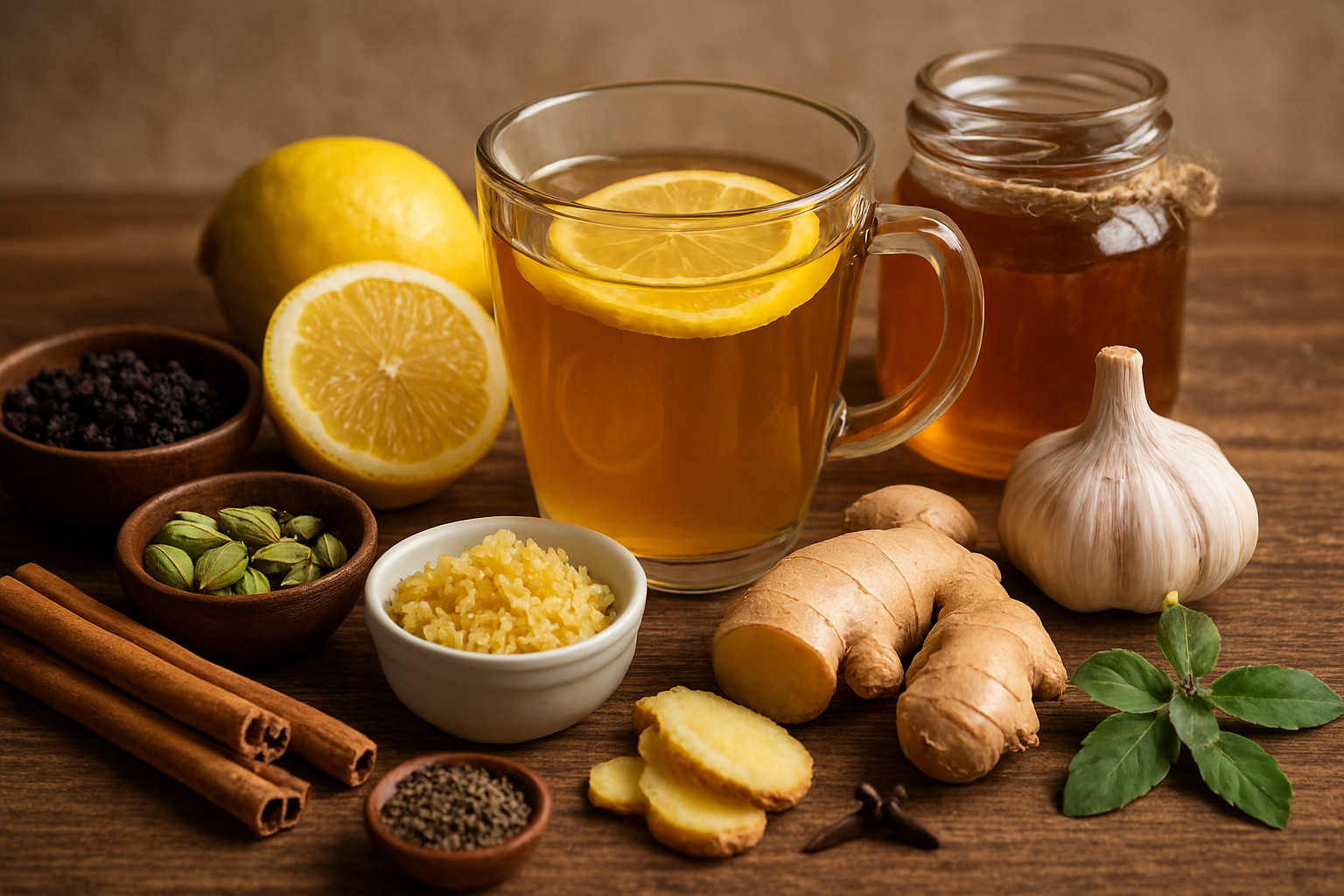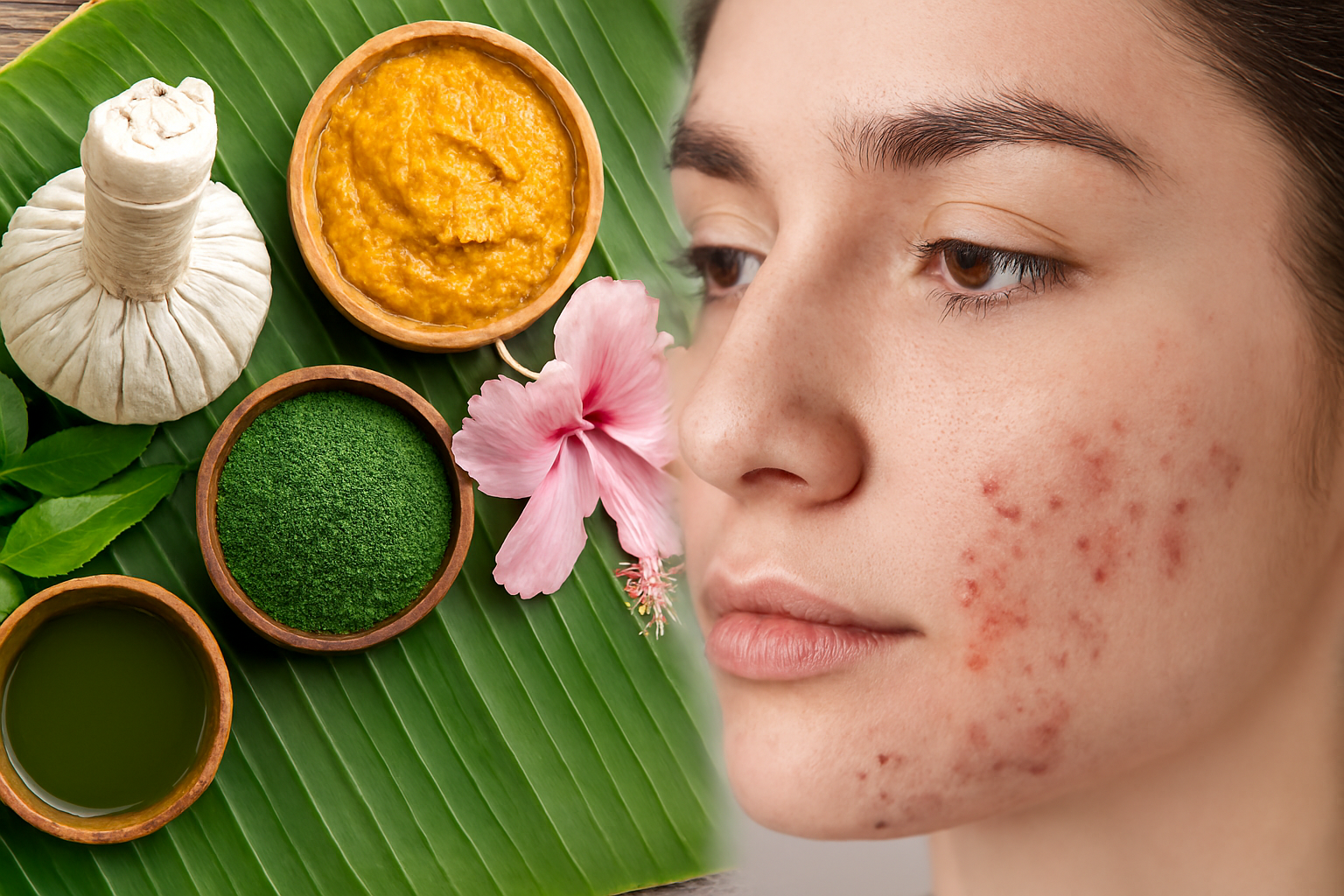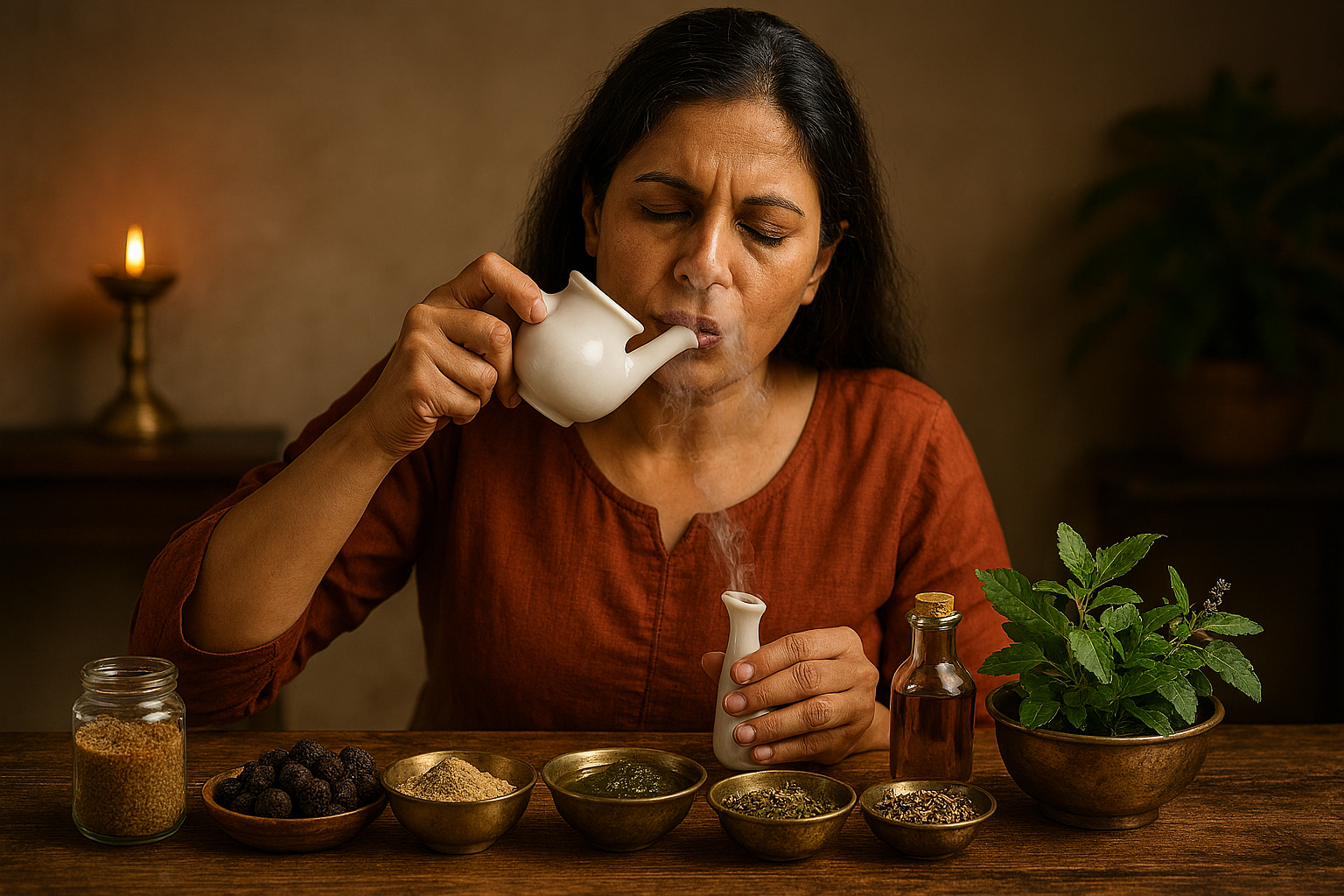Let’s Talk Ajwain
Alright, so ajwain—some folks call it carom seeds, or Yavani if you wanna get all Sanskrit about it—has been hanging around Indian kitchens and Ayurvedic medicine cabinets for what feels like forever. Your grandma probably swears by it for everything from that sketchy street food aftermath to coughs that won’t quit. And, turns out, she’s kind of got a point. Science is finally catching up to what desi moms already knew.
Quick Botany Nerd-Out
Ajwain’s official name is Trachyspermum ammi. It’s from the same plant fam as cumin and fennel—so, you know, all the stuff that makes food taste like actual food. It’s a scrappy little plant that doesn’t need much to thrive, just some dry, salty dirt. The seeds? Tiny, oval, kinda striped, and when you crush them, BAM—your whole kitchen smells like thyme on steroids. That’s thymol doing its thing.
What’s Inside These Magic Seeds?
Ajwain’s packing some serious nutritional heat for something so tiny. You get proteins, good fats, fiber, carbs—yeah, the whole squad. Minerals too: calcium, iron, manganese, the works. Plus vitamin C and B-complex. Oh, and don’t forget the fun stuff: flavonoids, tannins, all those fancy plant chemicals that scientists love to talk about but most of us just want to know—will it help my stomach? (Spoiler: Yes.)
And the essential oils? Mostly thymol, but also weird names like p-cymene, γ-terpinene, and limonene. Basically, this is what makes ajwain smell strong, taste punchy, and work its herbal magic.
Ayurveda’s Take (A.K.A. Ancient Wisdom Corner)
Ayurveda breaks everything down into taste, qualities, potency, and all that jazz. Ajwain? It’s got a spicy-bitter kick, feels light and sharp, packs heat (literally, in the “hot” sense), and digests pungent—whatever that means, right? It balances Vata and Kapha, but if you’re already running hot (Pitta peeps, that’s you), maybe chill with the heavy doses.
Traditional uses? Oh man, the list goes on:
- Bloating, gas, and that “regret eating so much” feeling
- Coughs, colds, asthma (Seriously, try ajwain steam for a stuffy nose. It works.)
- Achy joints, especially when you’re creaking like a haunted house
- Period cramps, and even after childbirth for recovery
- Slap it on cuts or sore muscles if you’re feeling bold
Pro tip from the ancient texts: Ajwain wakes up your digestive fire. Deepana-Pachana, baby.
Modern Science—Catchin’ Up
Here’s where it gets interesting. Scientists poked and prodded ajwain and—surprise!—a bunch of the old-school claims check out.
- Digestion: Boosts stomach juices, helps with enzymes, can even guard against ulcers (at least in animal tests).
- Germ-busting: Thymol and friends knock out bacteria like E. coli, and even some fungi.
- Heart: Lowers the bad cholesterol, bumps up the good, helps your ticker.
- Blood pressure: Acts like a natural calcium channel blocker. (Yeah, that’s a thing.)
- Lungs: Opens up the airways, calms coughs. Asthmatics, take note.
- Inflammation: Cuts down swelling and pain, especially in arthritis.
- Kidney stones: Tiny human study suggests ajwain helps dissolve some stones. Jury’s still out, but hey—worth a shot?
- Weight loss: Ajwain water is all over Instagram, but honestly, the research is kinda thin here. Your mileage may vary.
How Much Is Too Much?
Alright, don’t go dumping half a jar in your chai just yet.
- Powder: 1–3 grams a day is normal.
- Essential oil: 1–3 drops, but always diluted and preferably not DIY.
- Ajwain water: 5–10 drops distilled in water.
Heads up:
- Pregnant or breastfeeding? Give it a pass (it can mess with the uterus).
- High doses can make your stomach cranky, or make your skin freak out.
- If you’re on blood thinners or diabetes meds, talk to your doc.
- Guys with low sperm count? Old Ayurvedic texts say maybe skip it for now.
The Bottom Line
Ajwain’s the real deal. It’s not just another Instagram superfood—this stuff has legit history and now, some science to back it up. Toss it in your food for flavor and a little health boost. If you’re thinking about going hardcore with it (like, medicine-level doses), find someone who actually knows what they’re doing—preferably not your cousin who “read a thread about it.” Used right, ajwain is a kitchen MVP and a low-key healing hero.




